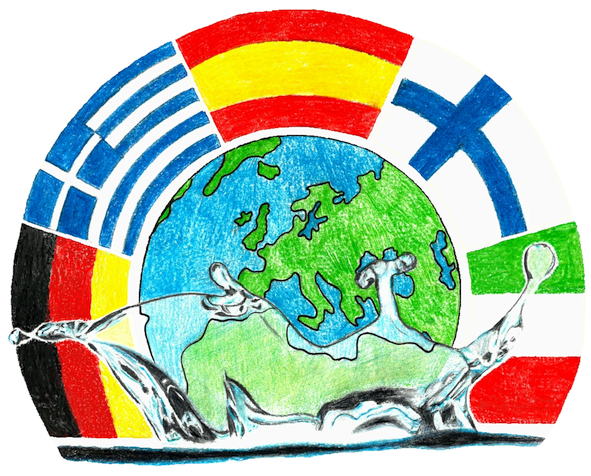Environment and Climate Change (Module 3)
Changes due to the predicted climate change and possible mitigation and adaptation measures in the participating regions are the focus of Module 3, “Environment and Climate Change”, headed by I. E. S. El Palmeral (Spain).
Climate change can cause water scarcity and other environmental disasters like floods. The project participants will study the changes expected in their respective regions by the predicted climate change, and they will investigate which measures have already been taken or should be taken by the participating countries to mitigate or adapt to the subsequent problems.
One aspect is the availability of water in the participating regions in the light of predicted changes in precipitation and the amount of snow and ice, which affect the water supply of lakes, rivers and groundwater. The quality and consumption of water in the participating countries will be compared to allow for conclusions on how to handle these resources sustainably. Furthermore, students should critically deal with questions regarding water management in the different regions and discuss alternatives. To do this, our students will need to contact water supply companies to have relations explained by experts. They will also present historical mitigation and adaptation measures regarding climate change.
All participants are expected to organize environmental projects on water in their schools. For this, they will need to determine the water consumption at their schools and develop measures on how to adjust the water consumption to the respective environmental conditions.
In line with this module, an environmental conference should be held in form of a simulation game. That way, the effects of climate change on water supply, which differ by region, can be clearly shown.
With the help of this module, the students should be able to
- organise and coordinate the research with external partners such as water companies, environmental scientists and spatial planners as well as inregional archives and museums.
- work in multinational and multilingual teams.
- research, evaluate, process, and edit the information gained.
- summarise the relevant information for a digital presentation.
- use photo editing software to edit photos in a creative way (cf. module 1).
- work with text and photo editors to create appropriate learning and teaching materials (cf. module 1).
- discuss and exchange relevant information and organise the next stages in the working process.
- split complex tasks into smaller and simpler ones which can then be tackled by individuals or small teams.
- create a presentation with a meaningful structure and a good layout.
- explain interactions between the environment, the economy and politics as well as consequences for society.
- analyse the differences between the participating countries and discuss alternatives to improve the current situation.
- plan and realise a conference on environmental issues, where interests of different organisations in the respective regions will be discussed.
- develop critical environmental awareness, regarding schools as well, to adjust their own water consumption according to requirements needed.
- plan and realise an environmental campaign at their own school, with a view of establishing an ecologically sensitive handling of water resources at schools.

